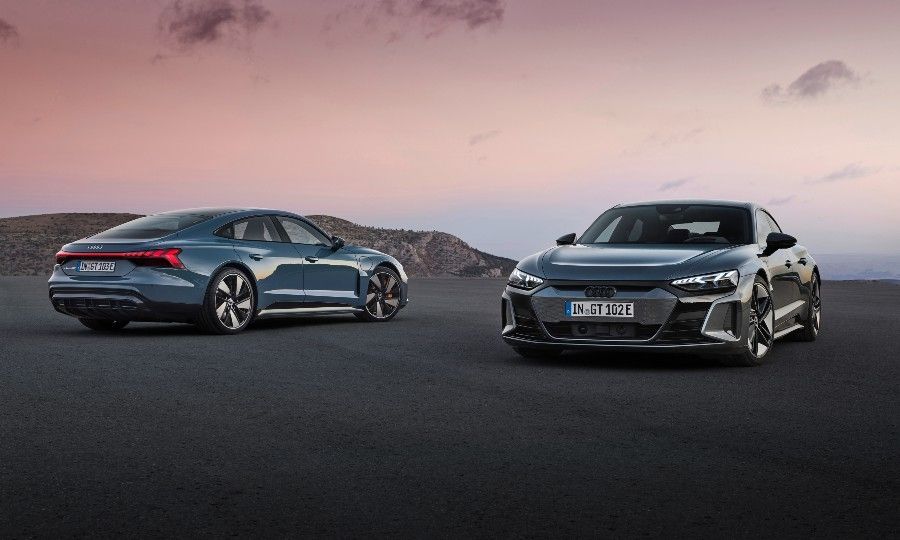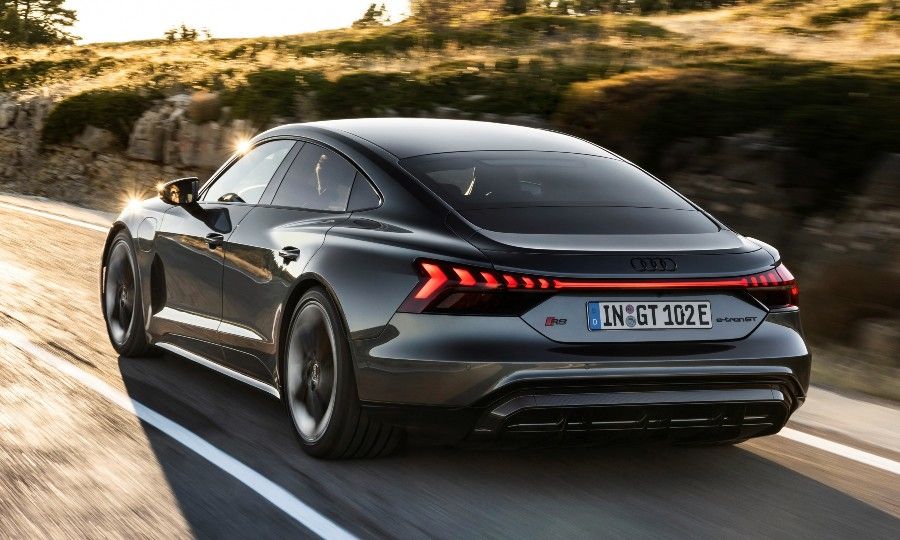The e-tron GT quattro's 85 kilowatt-hour lithium-ion battery provides a range of up to 488 km (298 miles) under Europe's WLTP testing cycle, Audi said.
The sedan is based on Audi parent Volkswagen Group's J1 platform used on the Taycan and the forthcoming Taycan Cross Turismo. The sharing of platforms cut overall development costs for the models.
The Audi car has same upper- and lower-deck battery pack format marketed by Porsche as the Performance Battery Plus.
The e-tron GT also has the same 800-volt electrical system that enables it to charge at a rate of up to 270 kW. Using fast-charging station, a drained e-tron GT battery can be replenished to 80 percent in 23 minutes.
The e-tron GT has an electric motor driving each axle that combine to offer a system power of 350 kilowatts (469 hp), even though the sum of their respective individual outputs at 495 kW far exceeds that. Audi says this is because both motors keep reserves available for extreme situations.
To ensure the vehicle's performance is more dynamic and responsive, the motors employ a permanent synchronous machine (PSM), rather than induction motors, or a mix of both.
This enables the e-tron GT to accelerate from 0 to 100 kph (62 mph) in 4.1 seconds and have a top speed of 245 kph (152 mph). The RS e-tron GT will sprint from 0 to 100 kph in 3.3 seconds. Its top speed is limited to 250 kph (155 mph).
Despite both vehicles' considerable power, they will have stiff competition in the Tesla Model S Plaid. The Tesla model has three electric motors and a combined output of 761 kW. It can accelerate from 0 to 100 kph in 2.1 seconds and reach a top speed of 322 kph. The Tesla sedan has 628 km of range under the U.S. test cycle.
Tesla is already now collecting orders for the Model S Plaid from German customers at a starting price of 116,990 euros. The likely delivery date for the car is September.




























